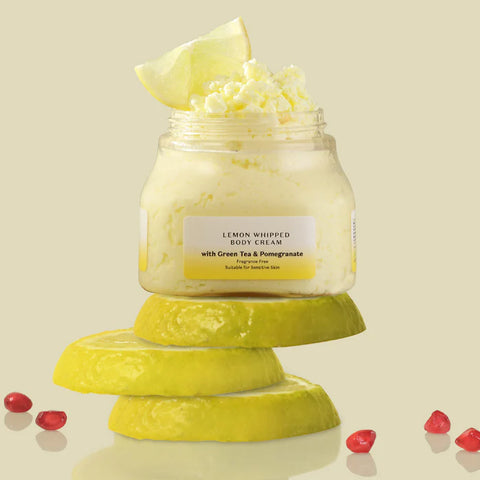Swimming is one of the most effective exercises that work out your entire body. It is also known to uplift your mood, and keep you healthy. However, there are certain things that you need to take care of when going for a swim in both indoor pools and beaches. The chlorine in pools and saltwater in the ocean is not good for your skin and hair and causes damage. You need to follow a swimmer’s skincare to protect your skin while having a refreshing swim.
Today, we will take a look at some of the best before and after swimming skin care practices that you can follow. So let’s get right into it, shall we?
-
What Is Swimming Skin Care?
-
Pre-Swimming Skin Care Tips
-
Post-Swimming Skin Care Tips
-
Conclusion
-
FAQs On Pre And Post Swimming Skin Care Tips
What Is Swimming Skin Care?

Swimming skin care refers to the various steps or products used to maintain and protect the skin from damage caused by exposure to chlorine or salt water while swimming. This can include using moisturisers, sunscreens, pre-swim lotions, or after-swim rinses and lotions to hydrate and soothe the skin, prevent drying and itching, and reduce the risk of skin irritation or infection.
It is important to do skincare pre and post-swimming because exposure to chlorine or salt water can have negative effects on the skin. Chlorine is commonly used in pools to sanitise the water, but it can strip the skin of its natural oils and cause dryness, itching, and irritation. Saltwater can have a similar effect, especially for those with sensitive skin. Sun exposure while swimming can also cause sunburn and increase the risk of skin damage and skin ageing.
Also Read: How to Get Rid of Sunburn Easily
Pre-swim skin care helps to reduce the amount of chlorine or salt that can penetrate the skin, while post-swim skin care helps to hydrate and soothe the skin, reduce the risk of skin irritation or infection, and repair any damage that may have been caused by exposure to the water. By taking steps to protect and care for your skin before and after swimming, you can help keep it healthy, smooth, and glowing.
Now that we know why swimmer’s skincare is essential, let’s take a further look at before and after swimming skincare.
Pre-Swimming Skin Care Tips
Here are some pre-swimming skin care tips to help protect your skin from the harmful effects of chlorine or salt water:
Shower before swimming

Taking a shower before swimming helps to remove any dirt, sweat, or oils from your skin that could interact with the chemicals in the water. This can help reduce the risk of skin irritation or infection and make your skin less likely to dry out or become itchy.
Also Read: Factors Responsible for Dry Skin
Apply a pre-swim moisturiser
Pre-swim moisturisers are designed to create a barrier between your skin and the water, reducing the amount of chlorine or salt that can penetrate the skin. These lotions typically contain ingredients such as glycerin or petrolatum that help hydrate the skin and prevent it from drying out.
Also Read : 7 Skin Care Tips For Dry Skin
Wear a swim cap
Wearing a swim cap can help protect your hair from damage caused by exposure to chlorine or salt water. This can help prevent dryness, itching, and breakage, and keep your hair looking and feeling healthy.
Use a water-resistant sunscreen

Applying a water-resistant sunscreen with a high SPF can help protect your skin from the harmful effects of sun exposure while swimming. Sun exposure can cause sunburn, and skin ageing, and increase the risk of skin cancer, so it's important to use a water-resistant sunscreen to protect your skin while you're in the water.
Hydrate your skin
Drinking plenty of water before swimming can help hydrate your skin from the inside out, making it less likely to become dry or irritated while in the water. Drinking enough water can also help flush out any toxins in your body and keep your skin looking and feeling healthy.
Also Check: Products for Skin Hydration
By following these pre-swimming skin care tips, you can help reduce the risk of skin damage and keep your skin looking and feeling healthy.
Post-Swimming Skin Care Tips
Now that we know about pre-swimming skin care tips, let’s take a look at some of the post-swimming skin care tips. Here are some post-swimming skin care tips to help soothe and hydrate your skin after exposure to chlorine or salt water:
Rinse off with fresh water

Rinsing your skin with fresh water immediately after swimming can help remove any chlorine or salt that may have accumulated on your skin. This can help prevent skin irritation and dryness and reduce the risk of skin damage caused by exposure to these chemicals.
Pat your skin dry
Instead of rubbing your skin dry with a towel after rinsing, gently pat it dry. Rubbing your skin too hard can cause irritation and remove any protective oils that may be on your skin. Patting your skin dry can help prevent skin damage and keep your skin hydrated.
Apply a moisturiser
Using a moisturiser after swimming can help hydrate and soothe your skin. Look for a moisturiser that is formulated for sensitive skin and contains ingredients such as glycerin, aloe vera, or coconut oil, which can help hydrate and soothe the skin. If you are looking for a new hydrating moisturiser, we suggest you try Pure Sense Whipped Body Cream, enriched with green tea and pomegranate and suited for sensitive skin to avoid any irritation from the water.

Drink water
Drinking plenty of water after swimming can help replenish the fluids that your body may have lost while in the water and can help keep your skin hydrated from the inside out. Staying hydrated can also help flush out any toxins in your body and keep your skin looking and feeling healthy.
Avoid tight clothing
Tight clothing can rub against your skin and cause irritation after swimming, so it's best to avoid wearing tight clothing. Instead, opt for loose, breathable clothing that won't constrict your skin. This can help prevent skin irritation and allow your skin to breathe, keeping it healthy and hydrated.
By following these post-swimming skin care tips, you can help reduce the risk of skin irritation, hydrate and soothe your skin, and keep it looking and feeling healthy.
Conclusion
We hope you know everything you need to know about a swimmer’s skin care including the before and after swimming skin care tips that you can follow. Remember to avoid any chemical skincare products especially pre and post-swimming as they can react with the chlorine in the water and cause skin irritation.
FAQs On Pre And Post Swimming Skin Care Tips
-
Is swimming bad for your skin?
Swimming itself is not inherently bad for your skin, but the chemicals in pool water and the exposure to the sun and wind can cause skin damage and irritation. Chlorine in pool water, for example, can strip the skin of its natural oils and cause dryness, itching, and redness. Exposure to the sun can cause sunburn, premature ageing, and skin cancer. Saltwater in the ocean can also cause dryness and irritation.
-
How do swimmers have clear skin?
Clear skin may have a combination of factors contributing to healthy skin, including proper skin care, hydration, avoiding harsh chemicals, eating a healthy diet, and limiting sun exposure. By following these practices, swimmers can help reduce the risk of skin damage and promote clear and healthy skin. However, it's also important to note that clear skin is influenced by many factors, including genetics and overall health.
-
Should I moisturise before swimming?
Yes, moisturising before swimming can be beneficial for your skin. Dry skin is more susceptible to damage and irritation, so applying a moisturiser before swimming can help protect your skin and keep it hydrated. Additionally, applying a moisturiser can help create a barrier between your skin and the chemicals in pool water or salt in ocean water, reducing the risk of skin irritation. It's best to use a lightweight, water-resistant moisturiser that won't clog pores or leave a heavy residue on your skin.
-
What to apply on the skin before swimming in terms of skincare?
Before swimming, it's recommended to apply a broad-spectrum sunscreen with an SPF of at least 30, a lightweight, water-resistant moisturiser, a lip balm with SPF, and to wear protective clothing such as a hat, sunglasses, and a swim shirt. These steps can help protect your skin from UV damage, hydrate your skin, and reduce the risk of skin damage.
Also Read : What Should You Apply First, Sunscreen or Moisturiser
-
What to do after swimming?
After swimming, it's recommended to rinse your skin with fresh water, drink plenty of water to rehydrate, apply a moisturiser, reapply sunscreen if necessary, and change into dry clothes. These steps can help reduce the risk of skin damage, keep the skin hydrated, and prevent skin problems like dryness, itching, and sunburn.







